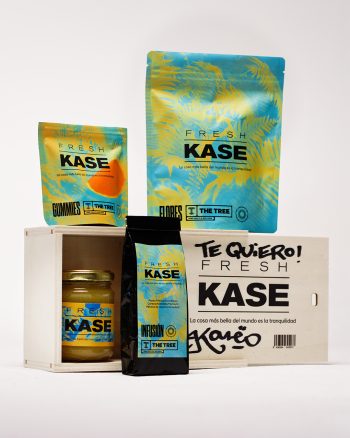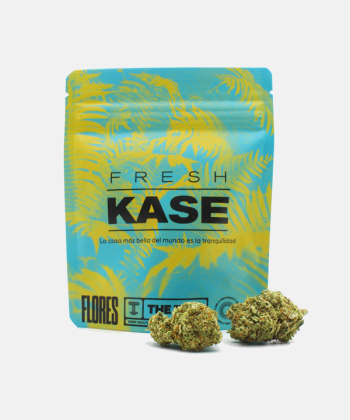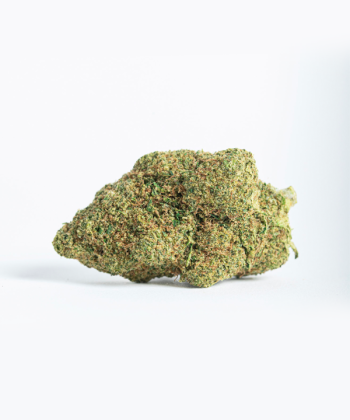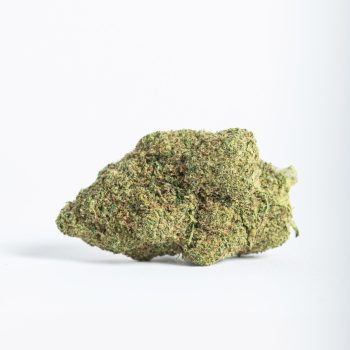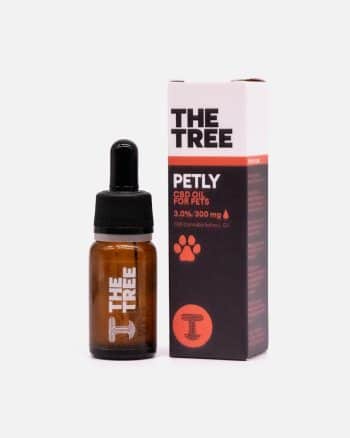HHC or hexahydrocannabinol is a cannabinoid whose popularity has skyrocketed in recent months. Even though this compound is being talked about a lot lately, it has been known about since the 1940s. In other words, it has been in existence for over 75 years.
This cannabinoid was synthesised and discovered by the American-born organic chemist Roger Adams¹. He was a very influential scientist at the time and headed the Department of Chemistry at the University of Illinois for more than 25 years.
He was also one of the pioneers in the study of cannabinoids. In fact, much of his work focuses on research into cannabis-derived compounds, and he was also the first person to isolate CBD².
But what is HHC?
 HHC or hexahydrocannabinol is a cannabinoid that occurs naturally in cannabis seeds in very low concentrations². It’s classified as a minor cannabinoid, due to the low levels found in the plant, as is the case with other cannabinoids such as CBN or CBG.
HHC or hexahydrocannabinol is a cannabinoid that occurs naturally in cannabis seeds in very low concentrations². It’s classified as a minor cannabinoid, due to the low levels found in the plant, as is the case with other cannabinoids such as CBN or CBG.
However, as explained in the previous section, this cannabinoid can be synthesised, as this is in fact how the man who discovered it, Roger Adams, did so. In fact, he patented the process in 1947, which is described in the document he used to apply for the patent.
But much has happened since then, and the procedure explained in that document is now in the public domain. In other words, the patent exploitation period has expired, so anyone with the necessary know-how can make use of it.
Obtaining HHC
HHC, according to this patent document, is obtained from tetrahydrocannabinol, or THC, which is the main active component of marijuana. However, this plant isn’t legal in most European countries, nor in many US states.
Not only marijuana produces THC, as hemp also produces it in very low quantities, at a maximum of 0.2%. It’s a cannabis plant from the same family as marijuana, but lacks psychotropic properties due to its low THC levels.
Thanks to the hemp plant, and through various processes of transformation of its cannabinoid-rich extracts, it is possible to obtain HHC or hexahydrocannabinol, which is sold in specialised establishments, such as our online shop.
Broadly speaking, HHC is produced by adding hydrogen to cannabis extracts, causing it to break the carbon bonds of the cannabinoids. This results in a hydrogenated cannabis extract that yields hexahydrocannabinol.
Effects of HHC
As explained in a study published in the mid-1980s by Pfizer researchers, HHC has analgesic effects⁴. It should be noted, however, that there are no data from human studies.
Furthermore, according to the press release of the EMCDDA (European Monitoring Centre for Drugs and Drugs Addiction) Technical Expert Meeting on Hexahydrocannabinol and Related Cannabinoids, HHC can have very similar effects on humans as THC⁵.
Although there are no studies to confirm the effects of HHC in humans, they are said to be like those of THC, but slightly less intense. The effects of THC are widely known and include the following:
- Relaxation
- Euphoria
- Increased appetite
- Altered perception of time and/or space
- Feeling sleepy, sluggish, and/or intoxicated
It can also have negative side effects, such as paranoia, anxiety, confusion, and tachycardia.
Is HHC legal in Europe?
As with many cannabis products, as it’s not mentioned in any law, nor specifically prohibited, it’s a legal product. However, this may depend on the form of the product and administration method.
Cannabinoid products are generally marketed in two forms, vape devices with HHC or CBD flowers enriched with HHC, although other products are available.
Vape devices, containing only the isolated cannabinoid without the presence of cannabis, are perfectly legal, just like CBD e-liquids or vape devices with CBD. With regard to flowers, however, it should be kept in mind that they are marketed as collector’s items and that current legislation doesn’t allow their consumption.
In other words, in Europe, the administration of cannabinoids by means other than topical use or inhalation using vape devices and e-liquids isn’t legally regulated. Consequently, users who consume these cannabinoids in ways other than those mentioned above would be misusing the products.
Lastly, we also remind you that HHC products aren’t intended for the diagnosis, treatment, or curing of any disease. We always recommend that you consult a doctor on a case-by-case basis, and follow the recommendations given to you by your medical specialist.
References on what HHC is and its legal status in Europe
- Roger, A. (1947). U.S. Patent No. 2,419,935. Washington, DC: U.S. Patent and Trademark Office.
- Ibídem.
- Basas-Jaumandreu, J., & de Las Heras, F. X. C. (2020). GC-MS metabolite profile and identification of unusual homologous cannabinoids in high potency Cannabis sativa. Planta medica, 86(05), 338-347.
- Melvin, L. S., Johnson, M. R., Harbert, C. A., Milne, G. M., & Weissman, A. (1984). A cannabinoid derived prototypical analgesic. Journal of medicinal chemistry, 27(1), 67-71.
- EMCDDA technical expert meeting on hexahydrocannabinol (HHC) and related cannabinoids | www.emcdda.europa.eu.







